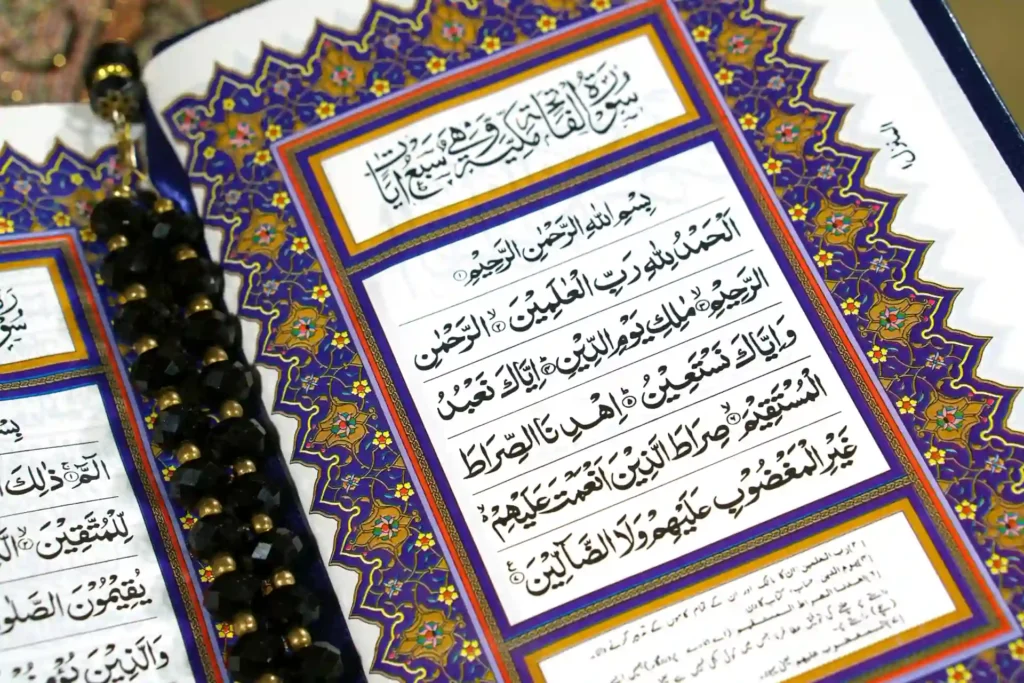Arabic In Islam: Understanding the Language of Faith
For millions across the globe, Islam is a way of life, a guiding force that shapes their beliefs and practices. But nestled at the heart of this faith lies another element, often intertwined with the religion itself: the Arabic language. This blog post uncovers the fascinating relationship of Arabic in Islam, exploring its historical significance, practical applications, and the impact it has on the faith. Whether you’re a curious learner, a passionate student of Arabic, or simply seeking to deepen your understanding of Islam, this exploration will unveil the intricate tapestry woven between these two entities. Arabic In Islam: A Historical Connection The connection between Islam and Arabic stretches back centuries, predating the religion itself. Arabic was the language spoken by the Prophet Muhammad (peace be upon him) and the communities he addressed during the revelation of the Quran. This historical context imbues Arabic in Islam with a unique and profound significance. The Quran, the central holy book of Islam, was revealed to Prophet Muhammad (peace be upon him) in Arabic that the Quran original language is Arabic. This divine text, believed by Muslims to be the literal word of God, holds immense importance in shaping Islamic beliefs and practices. The preservation of the Quran in its original Arabic form is considered crucial, as even slight changes in translation could potentially alter the meaning and interpretation of the divine message. Therefore, understanding Arabic, even at a basic level, allows Muslims to access the Quran in its purest form, fostering a deeper connection with their faith. This direct access to the source text empowers individuals to form their own interpretations and engage with the scripture on a more personal level. A Bridge to Tradition and Scholarship Beyond the Quran, countless Islamic texts, scholarly works, and historical documents are penned in Arabic. These writings, spanning centuries, offer invaluable insights into Islamic law, theology, philosophy, and history. Furthermore, many Islamic practices, like: Importance of Learning Arabic for Muslims: Deepening Faith and Connection While learning Arabic in Islam is not an obligatory requirement for being a Muslim, many Muslims find it immensely beneficial for a multitude of reasons: Learning Arabic: Beyond Religious Significance While the importance of learning Arabic in Islam cannot be overstated, the benefits extend far beyond the religious realm. Arabic is a widely spoken language across the globe, serving as the official language in 23 countries and spoken by over 300 million native speakers. Proficiency in Arabic opens doors to a multitude of opportunities, including: Learning the Arabic language has many other reasons to be an important language to learn, you can know more about them in this article about “Benefits of Learning Arabic”. Do You Need to Learn Arabic to be Muslim? While Arabic is undeniably significant in Islam, learning it is not a mandatory requirement to become Muslim. Many Muslims around the world practice their faith and observe religious obligations without speaking the language. Translated versions of the Quran and religious texts are readily available in numerous languages, allowing individuals to access and understand the core tenets of Islam regardless of their linguistic background. However, while not mandatory, learning Arabic in Islam offers enriching benefits for Muslims and non-Muslims alike. It opens doors to deeper understanding, fostering a closer connection with the faith’s core texts and traditions. Additionally, studying Arabic cultivates an appreciation for the language’s rich literary heritage and its influence on global culture. Understanding the Nuances of Arab vs Muslim It’s crucial to distinguish between the terms “Arab” and “Muslim.” and this is why we are going to answer all of the following questions with the same answer: While Arabic is the language spoken by many people in the Arab world, not all Arabs are Muslims, and not all Muslims are Arabs. Islam is a global religion with followers from diverse ethnicities and nationalities, speaking various languages. Starting your Journey: Resources and Recommendations Whether you’re a Muslim seeking to enhance your connection with your faith or simply a curious individual fascinated by languages and cultures, embarking on an Arabic learning journey can be a rewarding experience. Numerous online platforms, applications and educational institutions offer diverse resources to suit various learning styles and goals. Our online Arabic school provides a welcoming and supportive environment for students of all levels. Our interactive curriculum, tailored specifically for non-native speakers, emphasizes practical communication skills while simultaneously introducing learners to the linguistic and cultural nuances associated with Arabic in Islam, check our courses here. Conclusion The special role of Arabic in Islamic doctrine is inextricably tied to history but also remains relevant in its evolved forms. For devout Muslims seeking deeper connection to their spiritual roots, language journey set the stage. While optional, Arabic in Islam holds profound academic and psychological merits helping preserve religious texts as well as unite Muslims globally. Far from division, its prominence empowers diversity within the Ummah long into the future. Overall, appreciating Arabic’s integral yet flexible role fosters strengthened Islamic identity and inter-cultural respect among all its followers worldwide.
Arabic In Islam: Understanding the Language of Faith Read More »

